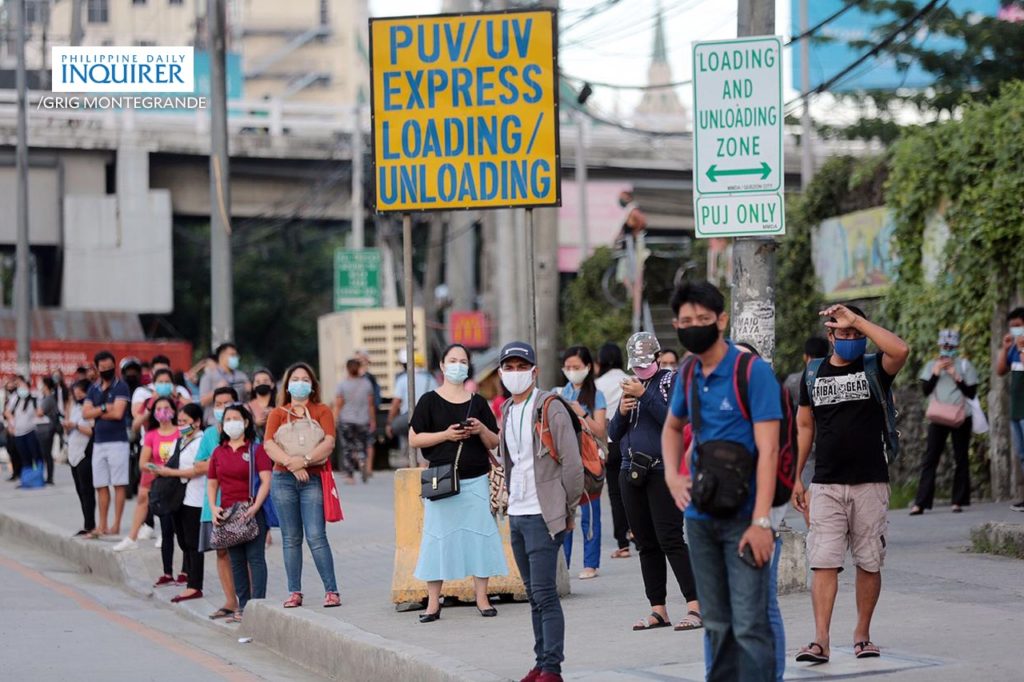MANILA, Philippines — The chief of the Metropolitan Manila Development Authority (MMDA) on Tuesday blamed commuters for the chaos on the roads on Monday, when the government loosened coronavirus restrictions in the metropolis to allow more movement and business reopenings to revive the economy.
MMDA General Manager Jose Arturo Garcia said the people “seemed to have lost focus” that the new coronavirus that causes the severe respiratory disease COVID-19 was still around and could spread wider with the easing of restrictions on public transportation.
“They were focused on traveling even though they [knew], just as the Department of Transportation said, our first priority is health and safety,” Garcia said in a radio interview.
He cited the crowding of hordes of commuters along Commonwealth Avenue in Quezon City on Monday, with no one giving others a wide berth as they waited for rides that never came.
Garcia also mentioned the crowding on a truck that police deployed to ferry stranded commuters.
“When they saw the free rides, many commented on social media that commuters fought over these, they were on the road, there were no lines. They were each to his own and forgot that the priority is to stay safe from [the coronavirus],” Garcia said
Ariel Inton, head of Lawyers for Commuters’ Safety and Protection, slammed Garcia’s remarks as insensitive, “assuming that people are stupid or stubborn.”
“The only reason they are outside is because we reopened so many businesses, and they would not have gone [out to go to work] if they [had not been] asked,” Inton said.
Transport officials allowed the three metro trains, so-called augmentation buses, and Philippine National Railways to resume operations at limited capacity for the reopening of the metropolis to economic activity.
They also allowed taxis and ride-hailing company cars to return to the road, as these can operate on apps for cashless fare payment.
But they banned jeepneys, UV Express vans, and city buses that serve most of the routes through business districts in the metropolis because it would be difficult to implement the cashless fare system on these vehicles, making them risky for virus transmission.
But without these vehicles, low-income workers, the bulk of Metro Manila’s workforce, cannot go to work. Transport officials encourage the use of bicycles, but don’t say how people can ride bicycles under heavy rain during the rainy season, which is almost here.
